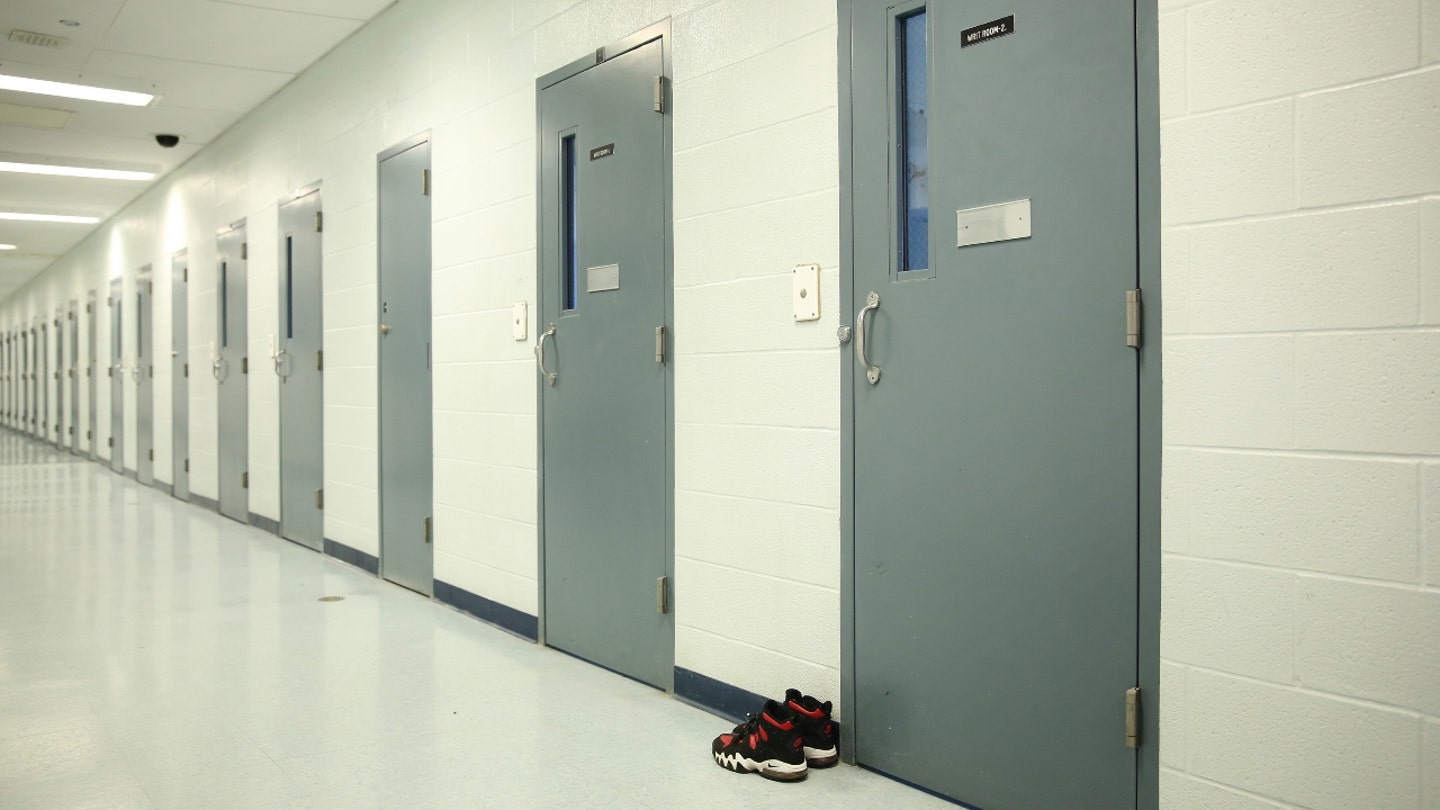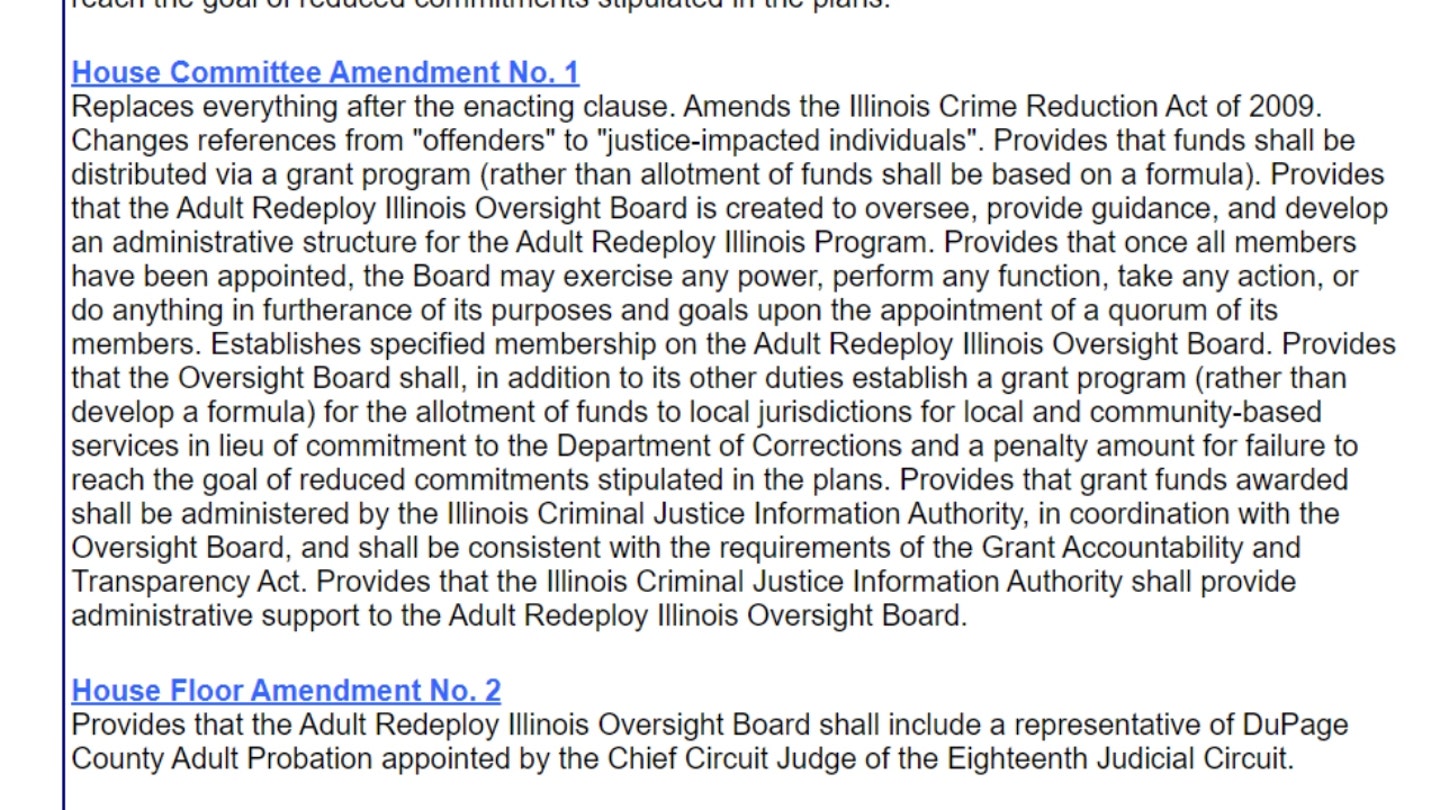Illinois Democratic state lawmakers are seeking to change the word "offender" to "justice-impacted individual" with a new bill, House Bill 4409.

Illinois Democratic state lawmakers are aiming to change the word "offender" to "justice-impacted individual" with a new bill. House Bill 4409 will amend the Illinois Crime Reduction Act of 2009 to change "references from ‘offenders’ to ‘justice-impacted individuals,'" among other changes, according to a summary of the bill.
"Over and over again, we keep changing the name of how we are referring to those who have entered into criminal activity and each time we make that change, each agency has to make that change on every one of their documents," Republican State Sen. Terri Bryant said during a Tuesday hearing, according to The Center Square. "Right now in the Department of Corrections, there's multiple changes that have been made and it’s costing thousands and thousands of dollars just to do a name change. Why is it necessary to make the name change?"

The legislation is being sponsored by Democratic Illinois State Reps. Kelly M. Cassidy and Lindsey LaPointe and Democratic State Sens. Robert Peters, Mike Simmons, and Adriane Johnson. Illinois state lawmakers want to replace "offender" with "justice-impacted individual." (Jason Wambsgans/Chicago Tribune)
The bill would also add members to the Adult Redeploy Illinois Oversight Board from the Illinois Department of Corrections, the Illinois Department of Human Services, and the Sangamon and Cook County Adult Probation departments, as well as two members who have personal experience with the Adult Redeploy Illinois system.

Peters is asking lawmakers to focus on that portion of the legislation. "This expansion marks a significant milestone in our ongoing efforts to promote equity and effectiveness within the Adult Redeploy Illinois program," Peters said in a Tuesday statement. "By diversifying the board and enhancing funding flexibility, the board can better address challenges faced within the ARI system." Illinois State Sen. Robert Peters is asking lawmakers not to focus on the "offender" name change portion of the bill. (State Sen. Robert Peters' Office)
The bill passed the Illinois State Senate on Tuesday and is currently headed to Illinois Gov. J. P. Pritzker's desk.

The proposed change has drawn mixed reactions from state lawmakers and stakeholders. Supporters of the bill argue that the term "offender" is stigmatizing and does not accurately reflect the complexities of people who have been involved in the criminal justice system. They believe that the new language will be more inclusive and respectful of individuals who are working to rebuild their lives after making mistakes.
Opponents of the bill argue that the term "justice-impacted individual" is too vague and does not provide a clear definition of who it applies to. They also worry that the change could lead to confusion in the criminal justice system, as different agencies would have to interpret the new language.
The debate over the proposed name change is part of a broader discussion about the role of language in shaping perceptions of crime and justice. Some experts believe that the use of certain words and phrases can perpetuate stereotypes and contribute to mass incarceration, while others argue that language is simply a reflection of the values and beliefs of a society.
The Illinois lawmakers behind the bill are hoping that the change will help to shift the narrative around crime and justice, and promote a more compassionate and understanding approach to individuals who have been involved in the criminal justice system.










